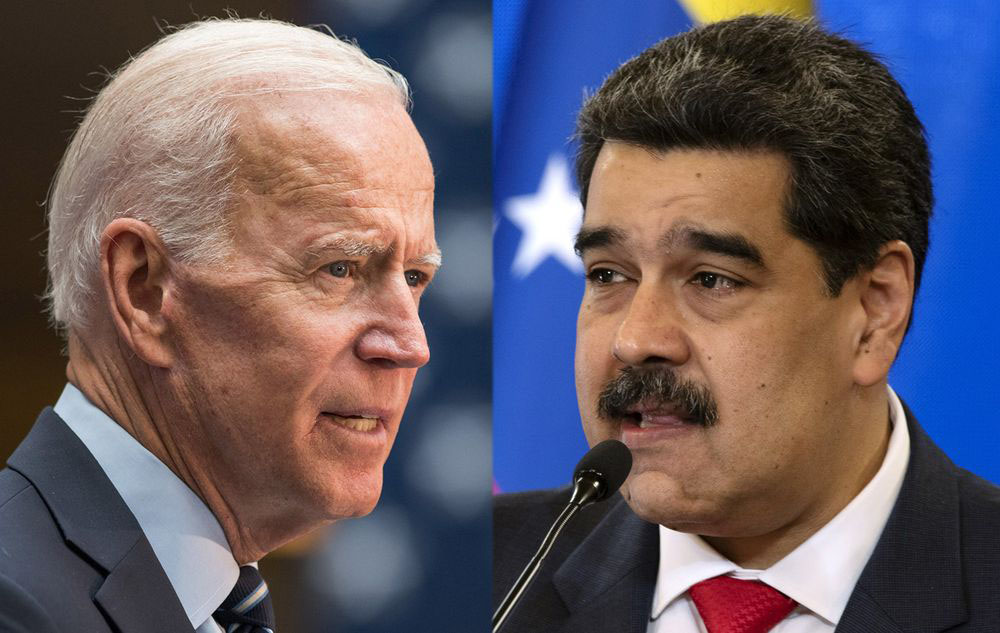It may not mark a definitive turning of the proverbial corner in terms of relations between Venezuela and the United States but watchers of the situation, however, are seeing the decision by the Biden administration to allow the United States oil giant Chevron a further extension on top of those previously granted under former President Donald Trump to maintain a limited presence in Venezuela, as a sign that small cracks may be opening that could allow for a cooling of what, in recent years, have been tense, even acrimonious relations between the two countries.
Venezuela, Guyana’s neighbour to the west, has seen its once powerful oil industry diminish disastrously on account of the crippling sanctions imposed by the Trump administration, targeting the regime of President Nicolas Maduro. Utilising its mix of global political clout and economic influence, Washington has pursued a campaign of mostly economic pressure to stop shipping companies from moving Venezuela’s crude to external markets. Russia, China and Iran are among a handful of countries that pushed back against the sanctions.
The remaining presence of a handful of US oil companies in Venezuela amidst the tumult of the wider sanctions, while not designed to improve the Maduro administration’s immediate-term fortunes, is aimed at seeking to ensure that an envisaged post-Maduro government in Caracas would at least inherit an oil industry not altogether in ruins. Beyond that, Washing-ton is also aware that any sudden recall of the operations of America’s oil companies in Venezuela could impact on the retrieval of billions of dollars in inventory.
The recent further extension of Chevron’s stay, the first granted under the Biden administration, lasts up to Decem-ber 1. The extension also clears other US oil companies including Halliburton, Schlumberger Ltd, Baker Hughes Com-pany, and Weatherford International Plc. to continue to conduct business in Venezuela that is “essential to the preservation of their assets and the protection of their employees,” according to a recent media report. The extensions, we are also told, are designed “to facilitate reimbursements to contractors recruited by the foreign companies.”
Since the passing of the previous deadline, Washington has expressly forbidden the US oil companies from engaging in any activity directly related to oil production.
Two things can be said about the current state of play in the relations between Washington and Caracas. First, there appears to be no overt signs that the Maduro administration is ready to buckle under the United States’ unrelenting pressure targeting the country’s oil resources and by extension, its heavily oil-dependent economy. Secondly, the advent of the Biden administration has coincided with a lull in the rhetoric and high drama that had characterised the behaviour of the Trump administration.
Even modest shifts in a script that has been characterised by sustained acrimony can, however, become subjected to exaggerated interpretations. This, indeed, may be the case with the recent agreement by Venezuela to allow the United Nations World Food Program to start operating in Venezuela. By the same token the decision by Caracas to remove incarcerated American Citgo Petroleum Corp executives from prison to house arrest and the move by the Venezuelan Congress to include Maduro opponents on a new electoral board might also be interpreted as gestures intended to send signals that the sense of foreboding that had informed relations between the two countries under the Trump administration might be nearing an end.
That said, there has been no definitive indication by the Biden administration that it is prepared to call off the sanctions that have all but crippled Venezuela’s oil industry, the numbers in terms of oil production telling a grim story. One recent report says that Venezuela’s current oil production figure now stands at around 445,000 barrels of oil per day, about 20% of what it was five years ago.
The story of the cataclysmic decline in Venezuela’s oil industry and the attendant political and economic fallout from what has become a battle of wills, has been related with a level of consistency that leaves no doubt that Venezuela’s political turmoil and its economic meltdown now, together, constitute the hemisphere’s most pressing crisis This, not least, because the flight of Venezuelans from their country’s multi-faceted crisis has impacted neighbouring countries, including Guyana, as well as Caribbean Community countries, primarily Trinidad and Tobago. In recent months the situation has also been attended by acts of verbal and physical hostility towards Guyana by Venezuela seemingly linked to the fact that the pendulum of international law would now appear to be more clearly favouring Guyana’s position in the long-standing territorial controversy between the two countries. Venezuela’s recent ‘attention’ to Guyana, of course, may not be altogether divorced from the fact of Guyana’s preoccupation in recent years with seeking to maximise what is believed to be the once-in-a-lifetime opportunity that has arisen out of its new-found considerable oil resources which, in just over five years, have already become an income-earner.









